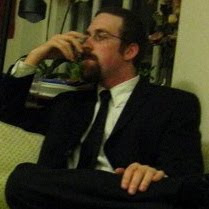In my previous post I discussed a variety of things which Oral Torah is not. I want to continue with what I feel are two helpful ways of understanding Oral Torah that may point us in a direction of clarifying it as a modality.
1. Oral Torah is a lifestyle-Oral Torah requires an engagement with TaNaKh and tradition that asks more questions than it answers and yet produces more clarity than confusion. The midrashim wrestle with deep existential questions and issues raised by the biblical text as it interfaces with the Jewish historical experience (even the more general human experience). Midrash does not produce dogma, but it does produce a way of engaging Scripture that values what it could be saying as much as what it actually does. Halakhic Oral Torah balances the midrashic/aggadic mode of living with the daily practical application of biblical law and ethics. Halakha understands biblical law to be applicable at the most basic level, and in every way possible. There is no room to have any aspect of life to be "secular." Oral Torah, in this sense moves beyond the realm of thought and engagement with Scripture and becomes a fundamental mode of living which consistently allows for the Written Word to say more than we could have ever imagined, and requires our attention in every facet of life.
2. Oral Torah is communication-This is more obvious. It is transmitted "orally," after all (in my next post I will discuss scholarship on what makes Oral Torah, well, oral). The texts of Oral Torah strive as much as possible to share the names of those who spoke the tradition. In fact, the titles of the earliest transmitters of Oral Torah are: Taanaim and Amoraim (literally, "speakers," in Aramic and Hebrew respectively). Almost all traditional Yeshivot require and encourage ongoing conversation about what various halakhot and midrashim mean. The conversation does not end, because to do so would diminish the very name of Oral Torah.
Gerard Bruns (a Christian Scholar) had the following to say about midrash, which I feel is applicable to Oral Torah, generally. This selection of his work ties together the view that Oral Torah is both, a lifestyle and conversation:
“At all events, my argument would be that we ought to think of midrash as a form of life…rather than simply as a form of exegesis; midrash is concerned with practice and action as well as (what we think of as) the form and meaning of texts...There is…no conflict of authority in midrash because in midrash authority is social rather than methodological and thus is holistic…the institution of midrash itself-rabbinic practice-is authoritative, and what counts is conformity with this practice rather than correspondence to some external rule or theory concerning the content of interpretation as such”
(Bruns, G. (1992). The Ancients. New Haven: Yale University Press, pgs.105 and 113).
In my section I will discuss ideas of the oral nature of Oral Torah.

No comments:
Post a Comment